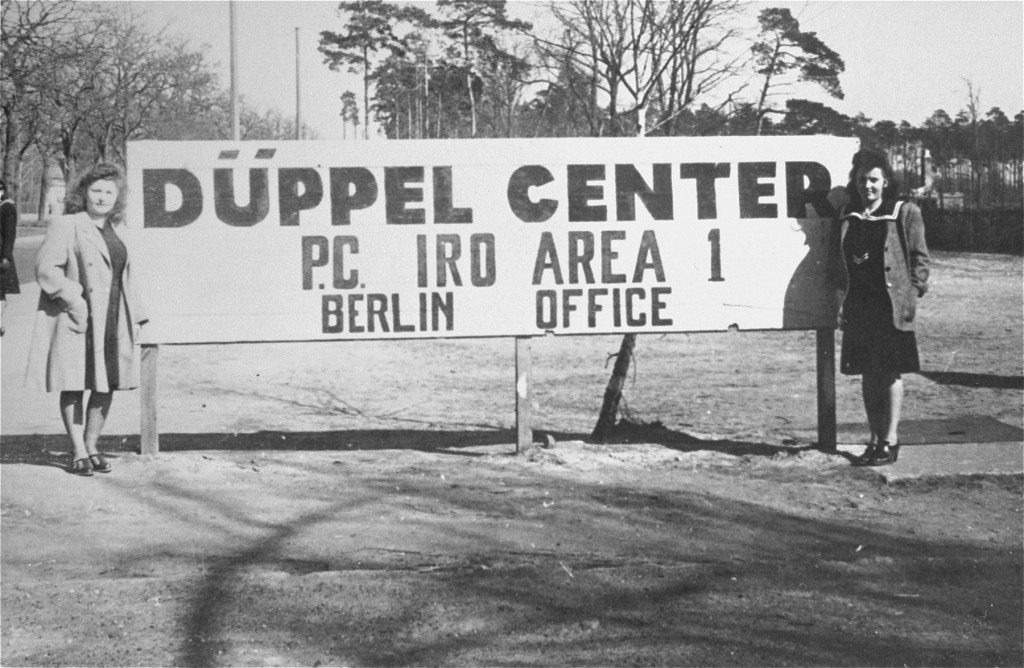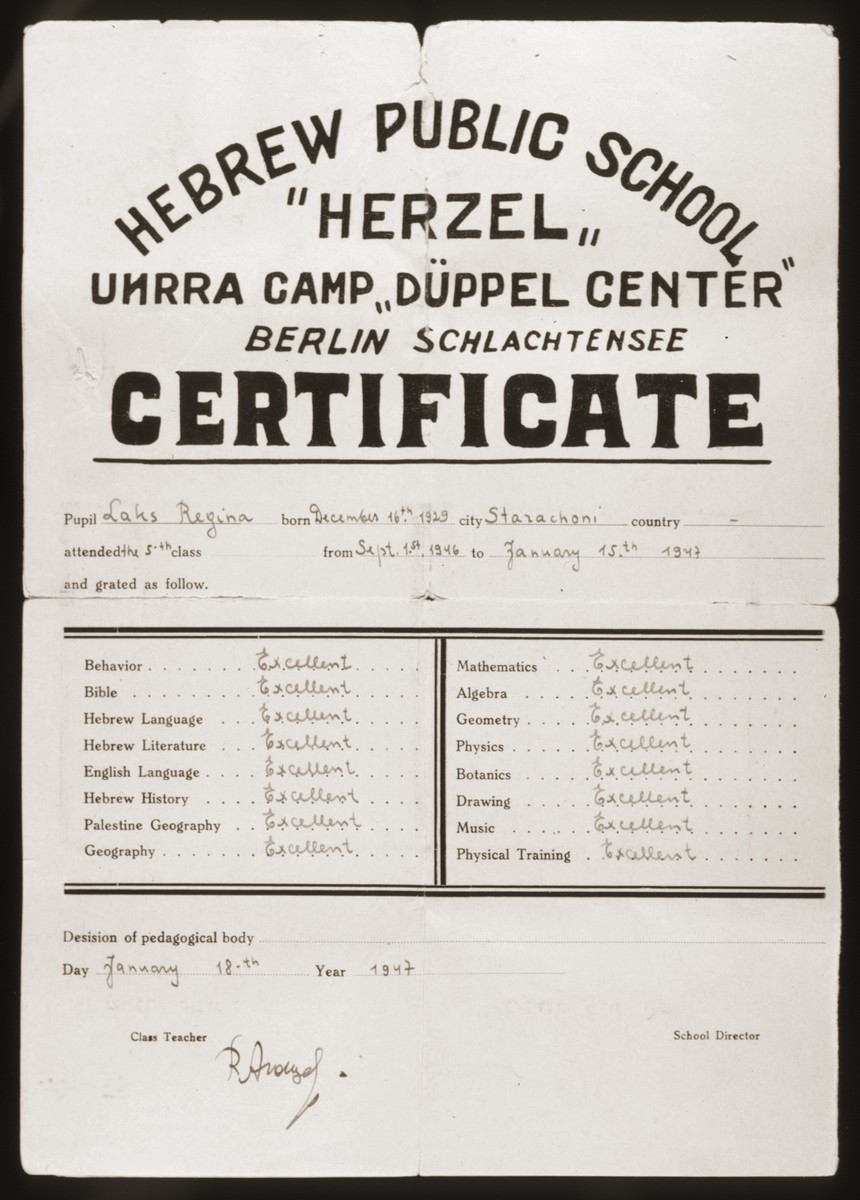
Düppel Center Displaced Persons Camp
For the Jews who survived the Holocaust, the end of World War II brought new challenges. Many could not or would not return to their former homelands, and options for legal immigration were limited. In spite of these difficulties, these Jewish survivors sought to rebuild their shattered lives by creating flourishing communities in displaced persons camps in Germany, Austria, and Italy. In an unparalleled six-year period between 1945 and 1951, European Jewish life was reborn in camps such as Düppel Center.
Düppel Center, the largest displaced persons (DP) camp in the American zone of occupation in Berlin, was established by the US Army in January 1946. The camp provided wooden huts and barracks for the refugees. By September 1946, Düppel Center sheltered 5,130 Jewish DPs, many of whom had fled post-war violence in Poland.

Educational opportunities at the camp included an elementary school with 385 students as of December 1947, as well as a kindergarten and religious schools. Düppel Center published a Yiddish language newspaper, Undser Lebn (Our Life), supported a theatre group, “Baderech” (On the Way), and had a synagogue. DPs at Düppel formed a sports club and benefitted from employment opportunities in the neighboring urban area.
Unfortunately, as a result of the Berlin Blockade, the residents of Düppel Center were abruptly evacuated from the region in July 1948. An American airlift carried Düppel DPs to Frankfurt am Main, and the camp was closed.
Critical Thinking Questions
- What challenges did survivors face in the DP camps?
- What challenges did the Allies face in establishing and supervising DP camps?
- What responsibilities do (or should) other nations have regarding refugees from war and genocide?

